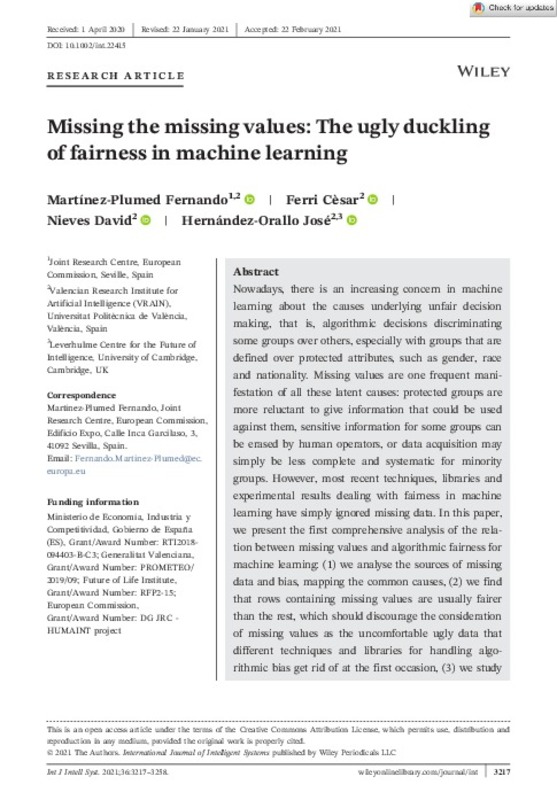JavaScript is disabled for your browser. Some features of this site may not work without it.
Buscar en RiuNet
Listar
Mi cuenta
Estadísticas
Ayuda RiuNet
Admin. UPV
Missing the missing values: The ugly duckling of fairness in machine learning
Mostrar el registro completo del ítem
Martínez-Plumed, F.; Ferri Ramírez, C.; Nieves, D.; Hernández-Orallo, J. (2021). Missing the missing values: The ugly duckling of fairness in machine learning. International Journal of Intelligent Systems. 36(7):3217-3258. https://doi.org/10.1002/int.22415
Por favor, use este identificador para citar o enlazar este ítem: http://hdl.handle.net/10251/181819
Ficheros en el ítem
Metadatos del ítem
| Título: | Missing the missing values: The ugly duckling of fairness in machine learning | |
| Autor: | Nieves, David | |
| Entidad UPV: |
|
|
| Fecha difusión: |
|
|
| Resumen: |
[EN] Nowadays, there is an increasing concern in machine learning about the causes underlying unfair decision making, that is, algorithmic decisions discriminating some groups over others, especially with groups that are ...[+]
|
|
| Palabras clave: |
|
|
| Derechos de uso: | Reconocimiento (by) | |
| Fuente: |
|
|
| DOI: |
|
|
| Editorial: |
|
|
| Versión del editor: | https://doi.org/10.1002/int.22415 | |
| Código del Proyecto: |
|
|
| Agradecimientos: |
Ministerio de Economia, Industria y Competitividad, Gobierno de Espana (ES), Grant/Award Number: RTI2018-094403-B-C3; Generalitat Valenciana, Grant/Award Number: PROMETEO/2019/09; Future of Life Institute, Grant/Award ...[+]
|
|
| Tipo: |
|









